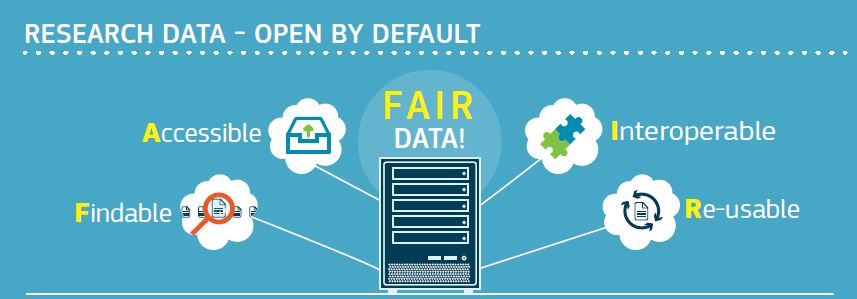It has been a while since we’ve blogged about the Research Data Alliance (RDA), and as an organisation it has come into its own since its beginnings in 2013. One can count on discovering the international state of the art in a range of data-related topics covered by its interest groups and working groups which meet at its plenary events, held every six months. That is why I attended the 13th RDA Plenary held in Philadelphia earlier this month and I was not disappointed.
I arrived Monday morning in time for the second day of a pre-conference sponsored by CODATA on FAIR and Responsible Research Data Management at Drexel University. FAIR is a popular concept amongst research funders for illustrating data management done right: by the time you complete your research project (or shortly after) your data should be Findable, Accessible, Interoperable and Reusable.
Fair enough, but we data repository providers also want to know how to build the ecosystems that will make it super-easy for researchers to make their data FAIR, so we need to talk to each other to compare notes and decide exactly what each letter means in practice.

Borrowed from OpenAire
Amongst the highlights were some tools and resources for researchers or data providers mentioned by various speakers.
- The Australian Research Data Commons (ARDC) has created a FAIR self-assessment tool.
- For those who like stories, the Danish National Archives have created a FAIRytale to help understand the FAIR principles.
- ARDC with Library Carpentry conducted a sprint that led to a disciplinary smorgasbord called Top Ten Data and Software Things.
- DataCite offers a Repository Finder tool through its union with re3data.org to find the most appropriate repository in which to deposit your data.
- Resources for “implementation networks” from the EU-funded project GO FAIR, including training materials under the rubric of GO TRAIN.
- The Geo-science focused Enabling FAIR Data Project is signing up publishers and repositories to commitment statements, and has a user-friendly FAQ explaining why researchers should care and what they can do.
- A brand new EU-funded project, FAIRsFAIR (Fostering FAIR Data Practice in Europe) is taking things to the next level, building new networks to certifying learners and trainers, researchers and repositories in FAIRdom.
That last project’s ambitions are described in this blog post by Joy Davidson at DCC. Another good blog post I found about the FAIR pre-conference event is by Rebecca Springer at Ithaka S+R. If I get a chance I’ll add another brief post for the main conference.
Robin Rice
Data Librarian & Head of Research Data Support
Library & University Collections
